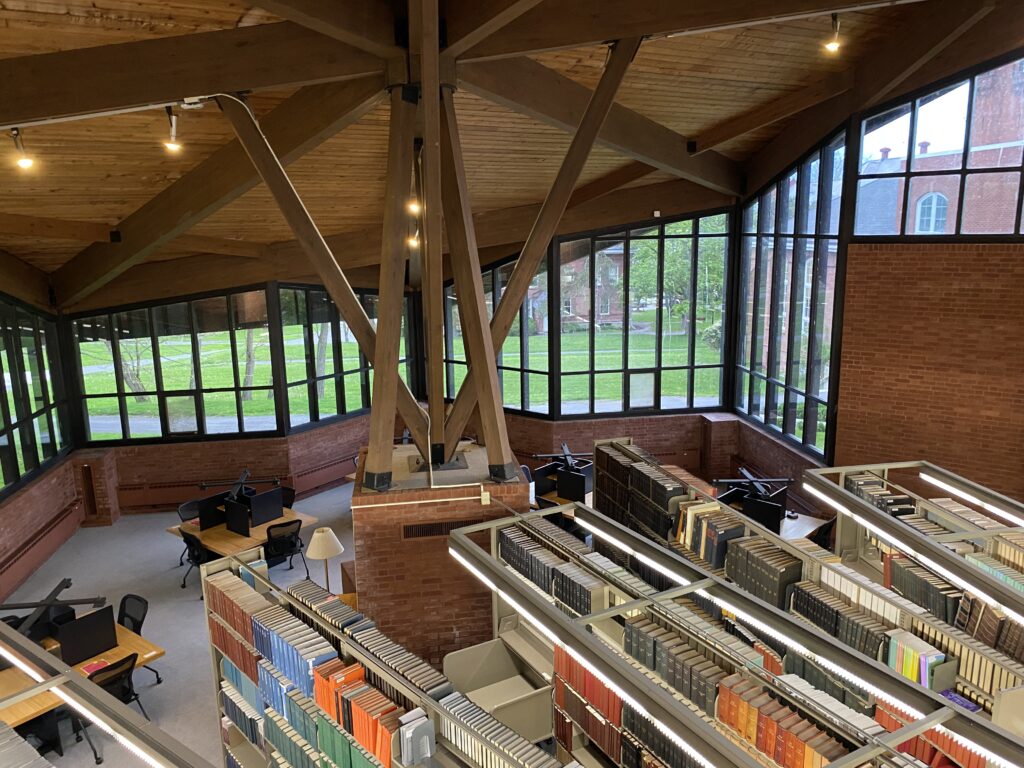March 24, 2025
The Preservation Association of Central New York (PACNY) is proud to share the news that Wells College has been named one of New York’s Seven to Save by the Preservation League of New York State. Since 1999, the Seven to Save program has spotlighted New York’s most at-risk historic places, drawing attention to significant sites in need of advocacy and creative solutions to ensure their preservation.
“Our hope is that by recognizing the campus as one of this year’s Seven to Save, the Preservation League can help PACNY bring together stakeholders to find a path forward through consensus,” said PACNY President Andrew Roblee. “This spirit of working together is captured by the Wells motto, Habere et Dispertire, ‘to have and to share.’”
Wells College, founded in 1868 as a women’s college, represents an important piece of New York’s educational and architectural legacy. Its historic campus, nestled in the picturesque village of Aurora, NY, includes several buildings and landscapes that are part of the Aurora Village Historic District, which was listed on the National Register of Historic Places in 1980. Additionally, just beyond the district boundaries are three striking modernist structures designed by Walter Netsch of Skidmore, Owings & Merrill (SOM), completed less than 15 years before the district’s original listing.

Louis Jefferson Long Library, Walter Netsch (1968)
However, Wells College now faces serious challenges following its sudden closure in the spring of 2024. The implications of the closure extend beyond Aurora, affecting the local economy, community identity, and the preservation of the college’s remarkable architectural heritage. The threat of deterioration looms large if essential maintenance—particularly heating through the winter and regular monitoring—is not provided.
Caitlin Meives, Director of Preservation for the Preservation League of NYS, emphasized the broader implications of Wells College’s inclusion on the list: “Wells College is a cornerstone of Aurora, NY, and its closure puts not just its buildings and landscape at risk, but also the sense of place it has helped foster in the wider community. Its significance goes beyond the local. As the state of higher education continues to change, other small liberal arts colleges may shutter as well. In the long term, a sensitive adaptive reuse of this storied college campus would positively impact the local community while providing an example for other similar campuses across the state and beyond.”
Efforts to safeguard Wells College’s future are already underway. A partnership group including PACNY, Historic Ithaca, the Landmark Society of Western New York (which also included Wells on its 2025 Five to Revive List), and the Preservation League of NYS is actively working to engage the local community, the college administration, and state officials to find viable solutions.
The closure of Wells College is a moment of critical importance for New York’s cultural heritage. By raising awareness and building coalitions, we aim to protect this extraordinary property and ensure its continued use, ideally as part of a broader strategy that can provide inspiration for other struggling institutions.
For more information, contact:
- Andrew Roblee, President, PACNY – email@pacny.net
- Nicole Fragnito, Executive Director, PACNY – nfragnito@pacny.net













